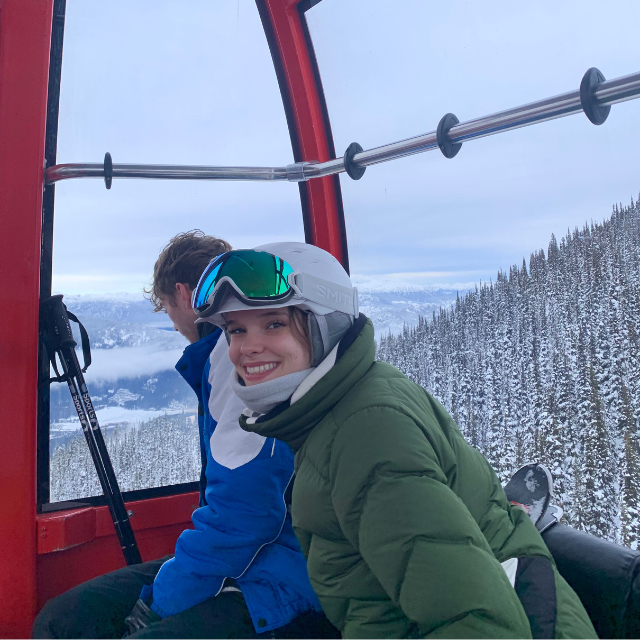HBA Sustainability Certificate
Empowering the next generation of sustainable leaders
My name is Olivia Dunstan, and I am an HBA1 student. Growing up in Vancouver, the environment has always had a special place in my heart, and I have a deep passion for animal conservation. Combined with my love for fashion, my long-term goal is to make an impact within the fashion industry concerning sustainable transformation. Now, I want to connect my business education and sustainability knowledge at Ivey to create change in the world. I want to be proud of my work in my career and the impact I can make by gaining knowledge of sustainable business practices.
What is your personal definition of sustainability?
Sustainability means creating and changing systems to enhance the longevity of our planet Earth, including individual, daily actions such as composting and slow-fashion, as well as global shifts in regulations, policies, etc. Being sustainable implies that resources can preserve themselves almost infinitely while giving back to the Earth what they are taking. Additionally, it's about improving the conditions for those most affected by unsustainable practices, such as workers in poor labour conditions and impoverished countries that are most susceptible to climate change's effects. Overall, it is making active and informed decisions that respect and elongate the environment and societies.
What role do you see sustainability playing in your professional career?
Sustainability is increasingly becoming more important worldwide, and I have also experienced this growth in my personal and career life. As someone who plans to pursue a career that incorporates both business and fashion, I believe sustainability can play a critical role in this path. As fashion is one of the most significant contributors to climate change and human rights issues, it is an industry in which I am passionate about making a difference. Having taken many additional courses on sustainability within the fashion sector, I have realized the opportunities there are to transform the way it operates, such as sourcing renewable materials and eliminating synthetic fibres, implementing worker rights across the supply chain, and the value of innovation to suppress overproduction. Through the knowledge gained so far in my business education, I hope to implement strategic solutions within the fashion supply chain and innovate more sustainable ways that the industry can transition to a circular model. As an industry that will never lose its demand, fashion has a critical role to play in global sustainability transformation, and this is a movement I want to be a part of.
What sustainability projects have you been engaged in?
Since attending an Upcycling fashion course abroad during the summer between my second and third year, I have been actively upcycling the clothing items I no longer wear. As someone who loves clothes and fashion, I purchased many items I would only wear a few times and then dispose of. After realizing this, I decided to take action regarding this unsustainable habit, combined with my love for sewing, to transform my unworn clothes into garments I would use more. Although this is not a large-scale project, it is an action that I feel makes a significant difference in my life and the sustainability of my habits. More professionally speaking, the summer after my first year, I interned for Intengine, an online database that promotes transparency for companies and their sustainability efforts. During my time as an intern, I published many white papers discussing sustainable developments and innovations, as well as critical areas of improvement, for a range of industries. This experience not only furthered my knowledge and understanding of global developments towards sustainability but also taught me how to communicate these findings to the public to inspire further innovations and changes.
Please list any sustainability-related interests you want to explore during the certificate.
Olivia Dunstan
